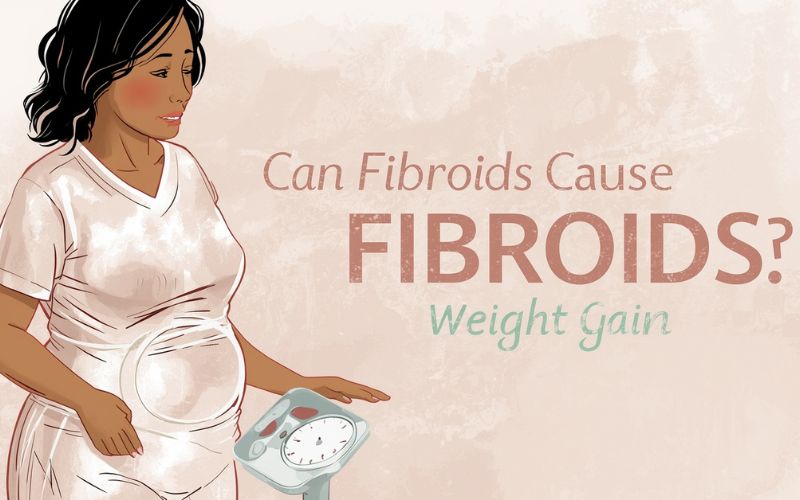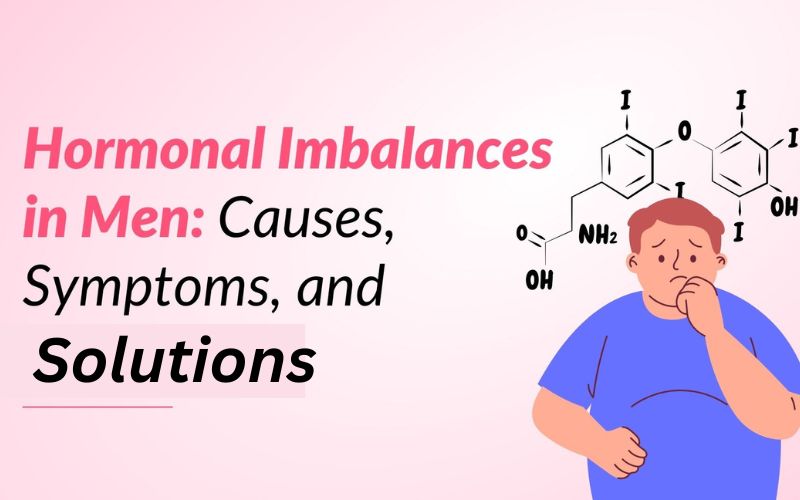Many women notice unexpected weight gain, bloating, or a growing belly and wonder — could fibroids be the reason? It’s a valid concern because uterine fibroids, though non-cancerous, can affect your body in more ways than one. Understanding how fibroids and weight are connected helps you take charge of your health with confidence.
Table of Contents
What Are Fibroids?
Uterine fibroids are benign growths that develop inside or around the uterus. They vary in size — some are as small as a seed, while others can grow large enough to make your abdomen look several months pregnant. These growths are influenced by hormonal fluctuations, especially estrogen and progesterone, which is why they commonly occur during the reproductive years.
Fibroids can cause symptoms like heavy periods, pelvic pain, backache, and a feeling of fullness or swelling in the lower abdomen. Some women also notice a gradual increase in weight, leading to confusion between hormonal weight gain and fibroid-related changes.
Can Fibroids Really Cause Weight Gain?
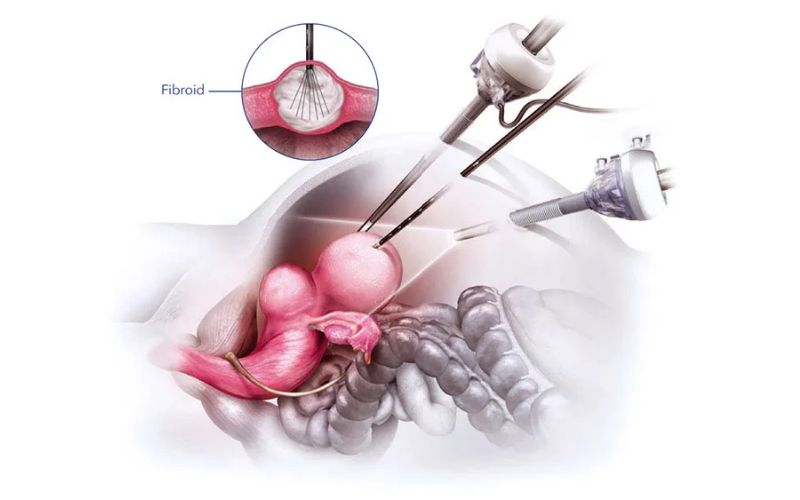
Yes, fibroids can cause weight gain — but not always in the way you think. Let’s break it down.
1. Physical Mass of Fibroids
Large fibroids can weigh several pounds on their own. For instance, a single fibroid can weigh between a few grams to several kilograms, directly contributing to an increase in overall body weight. This often gives the abdomen a rounded or bloated appearance, similar to belly fat gain.
2. Hormonal Imbalance
Fibroids are estrogen-sensitive, and higher estrogen levels can lead to both fibroid growth and fat accumulation, particularly around the hips, thighs, and abdomen. Hormonal imbalance can also slow metabolism, making it harder to lose weight. Many women dealing with hormonal changes experience similar struggles to those facing low testosterone-related weight gain.
3. Bloating and Water Retention
Fibroids press against the digestive organs, slowing down bowel movements and causing bloating or constipation. This doesn’t add real fat but increases abdominal girth, making your clothes fit tighter.
4. Reduced Physical Activity
Pain, fatigue, or discomfort from fibroids can reduce your desire to stay active. Over time, a sedentary lifestyle combined with hormonal shifts contributes to gradual weight gain.
How to Know if Your Weight Gain Is Fibroid-Related
Fibroid-related weight gain often feels different from lifestyle-based gain. You might notice:
- A hard or firm bulge in the lower belly rather than soft fat.
- Abdominal pressure or fullness even when not eating much.
- Heavy or prolonged menstrual bleeding.
- Frequent urination or lower back pain.
If you’ve already ruled out other causes like thyroid issues or overeating, it’s worth talking to a gynecologist for a pelvic ultrasound. Understanding your body helps you separate true weight gain from fibroid-related swelling or fluid retention.
Managing Weight Gain Caused by Fibroids
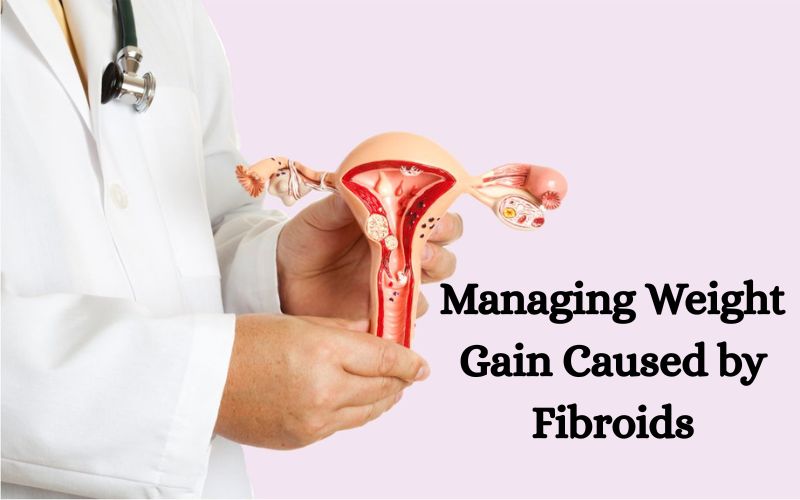
The good news is — fibroid-related weight gain can be managed through a mix of medical treatment and lifestyle changes.
1. Medical and Surgical Treatments
Treatment depends on fibroid size and symptoms. Options include:
- Medication to shrink fibroids or balance hormones.
- Uterine Fibroid Embolization (UFE) to block blood supply to fibroids.
- Surgery (Myomectomy or Hysterectomy) for large or multiple fibroids.
Women recovering from treatment often focus on maintaining healthy body composition through balanced nutrition. Recovery-friendly options include energy-supporting formulas such as Dymatize Super Mass Gainer 2.7kg and Labrada Nutrition Muscle Mass Gainer 6lbs, helping replenish strength after medical recovery.
2. Adopt a Hormone-Balancing Diet
Your diet plays a huge role in managing fibroids and body weight. Focus on:
- Leafy greens and cruciferous vegetables for estrogen regulation.
- Fibre-rich foods to prevent bloating and constipation.
- Omega-3 rich sources like chia seeds and salmon for inflammation control.
To maintain energy balance, clean carbohydrate blends such as Carb X support sustained energy without blood sugar spikes.
Women aiming to maintain a healthy shape after treatment often choose balanced eating patterns similar to those promoting healthy weight gain without belly fat.
3. Stay Active and Manage Stress
Mild workouts like walking, yoga, and swimming can help reduce estrogen dominance and improve metabolism. When fatigue limits exercise, nutrient-packed blends like Mutant Mass Extreme 2500 7lb or Rule 1 Gainer 6lb can help preserve lean mass and energy levels.
For women balancing work and health, practical strategies for maintaining nutrition and movement are shared in weight gain hacks for busy people, which can be adapted to fit fibroid recovery routines.
4. Support Your Body Naturally
Fibroids thrive in high-estrogen environments, so maintaining hormonal balance is key. Avoid excessive sugar, caffeine, and alcohol. Incorporate anti-inflammatory foods, hydration, and herbal teas to help the liver metabolize estrogen effectively.
During recovery, balanced nutrient supplements like Kevin Levrone Anabolic Mass 3kg, Pro Supps Incredibulk 6lb, or Gold Super Mass 7kg can provide essential calories for energy without excessive fat gain, particularly for those managing fatigue or appetite changes.
Nutrition Tips for Women Managing Fibroids
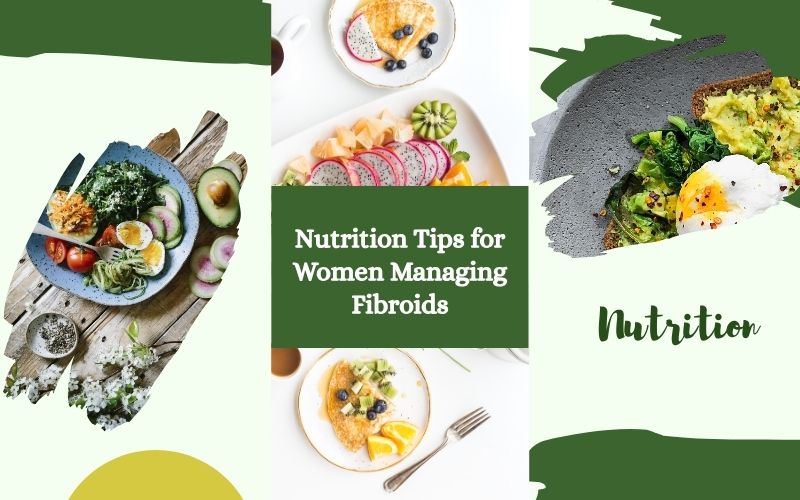
It’s not just about avoiding what’s bad — it’s also about choosing foods that work for your body.
- Eat iron-rich foods to combat heavy menstrual bleeding.
- Include lean proteins from eggs, lentils, and low-fat dairy.
- Stay hydrated to reduce bloating and constipation.
- Limit high-sodium packaged foods that promote water retention.
Women who prefer plant-based nutrition can take inspiration from vegan weight gainer approaches and balanced weight gain diets for Pakistani vegetarians to manage overall health while staying hormonally stable.
Those exploring supportive products can find several nutrient-dense recovery options in the Weight Gainer Price in Pakistan range, ideal for maintaining energy levels during treatment.
When to See a Doctor

See your gynecologist if:
- You notice rapid abdominal growth or bloating.
- Your periods become heavier or more painful.
- You experience fatigue, dizziness, or urinary pressure.
Early diagnosis helps manage fibroids and prevent complications like anemia or long-term hormonal imbalances.
Final Thoughts
Fibroids don’t always cause weight gain, but they can make you feel heavier — physically and emotionally. From bloating and hormonal imbalance to the mass of fibroids themselves, several factors can influence your scale reading.
Focus on gentle exercise, hormone-friendly nutrition, and timely medical guidance. Your journey to balance doesn’t have to be restrictive — it’s about feeling comfortable in your own skin again, with smart nutrition and consistent self-care guiding the way.














